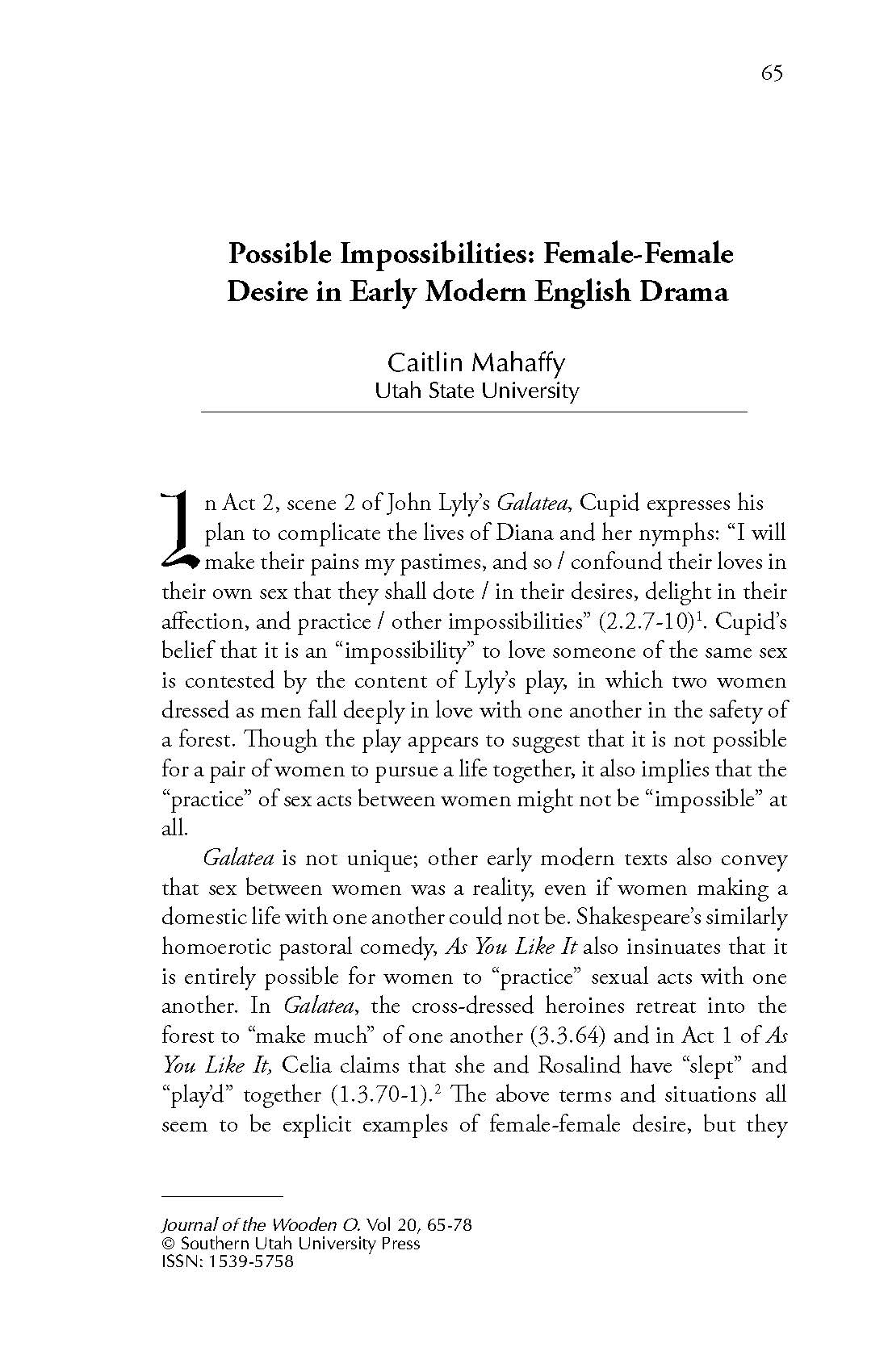Possible Impossibilities Female-Female Desire in Early Modern English Drama
Main Article Content
Abstract
In Act 2, scene 2 of John Lyly’s Galatea, Cupid expresses his plan to complicate the lives of Diana and her nymphs: “I will make their pains my pastimes, and so / confound their loves in their own sex that they shall dote / in their desires, delight in their affection, and practice / other impossibilities” (2.2.7-10)1. Cupid’s belief that it is an “impossibility” to love someone of the same sex is contested by the content of Lyly’s play, in which two women dressed as men fall deeply in love with one another in the safety of a forest. Though the play appears to suggest that it is not possible for a pair of women to pursue a life together, it also implies that the “practice” of sex acts between women might not be “impossible” at all.
Article Details
Section
Articles
